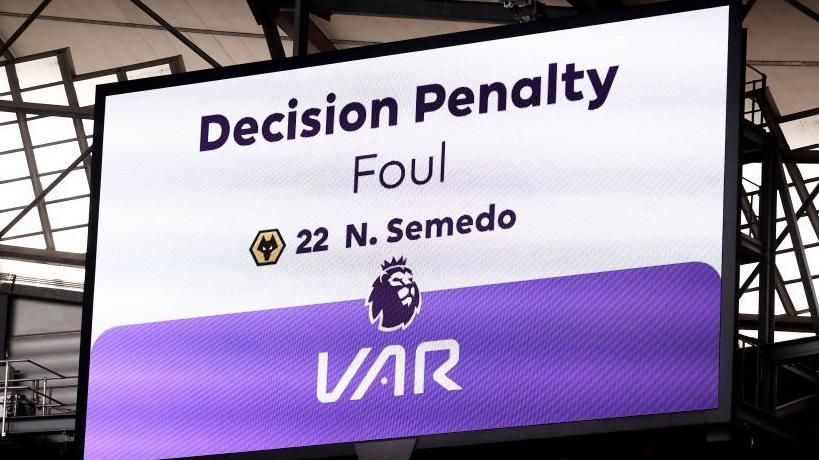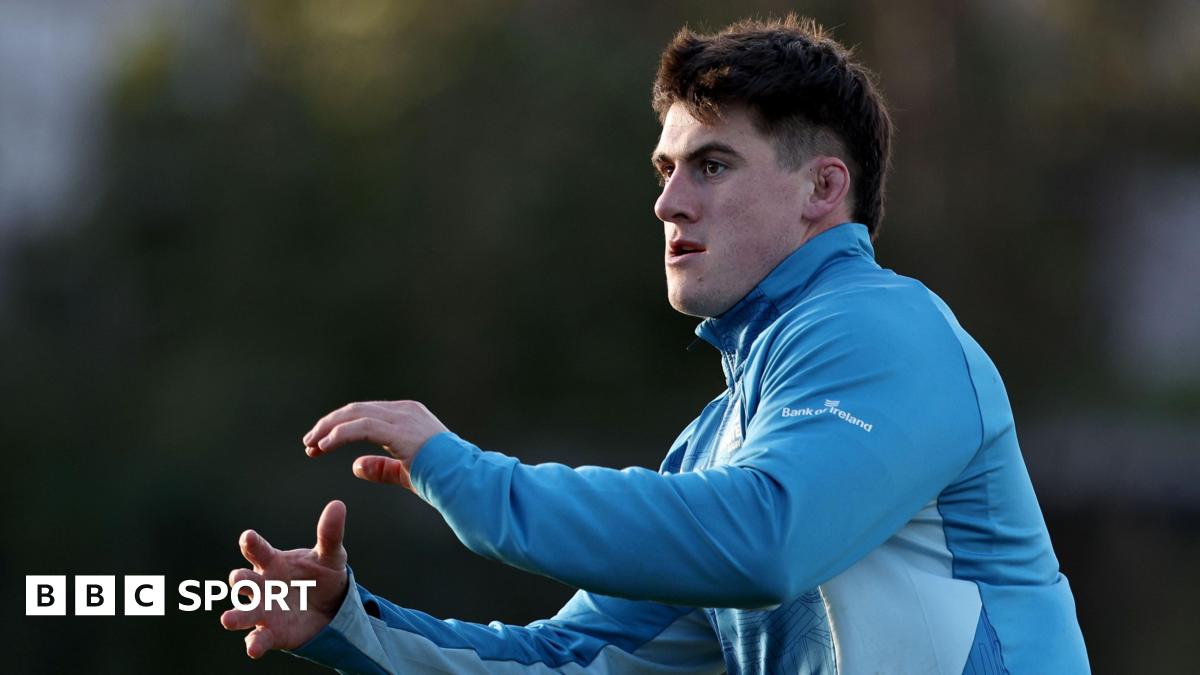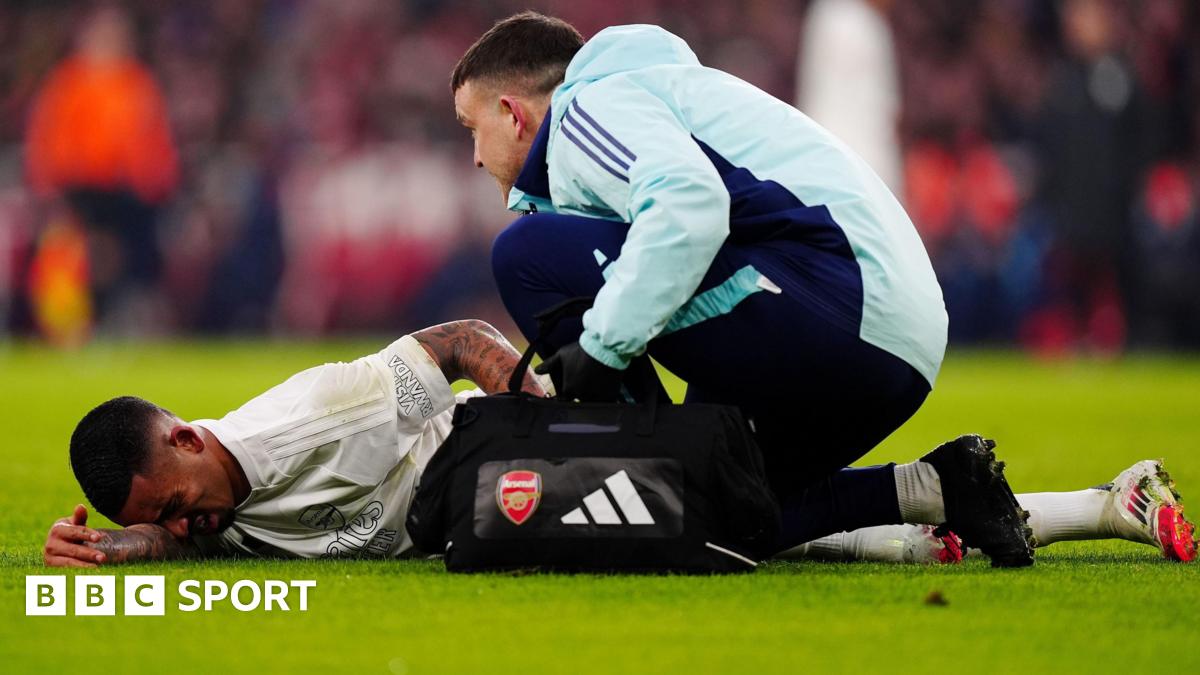ARTICLE AD BOX
 Image source, Getty Images
Image source, Getty Images
Wolves issued a statement in May with nine reasons why VAR should be scrapped - including their belief that it has led to a more hostile atmosphere towards officials
The 2023-24 Premier League season ended with Wolves triggering a vote to scrap the use of Video Assistant Referees (VAR) after a season of acrimony around the standard of refereeing and impact of technology on football.
Wolves lost the vote 19-1 but the Premier League promised to improve VAR.
As VAR enters its sixth season in the top flight, the Premier League says fans can expect quicker decisions, fewer interventions and "near-live" explanations of VAR calls on social media platform X.
BBC Sport outlines the key talking points and changes, following briefings with the Premier League and referees' chief Howard Webb this week.
Quick reminder of last season's controversies...
There were several flashpoints last season:
Wolves boss Gary O'Neil called one VAR offside decision "the worst he had ever seen" and was banned for his behaviour
Liverpool had a goal against Tottenham incorrectly ruled offside due to "significant human error" - prompting an apology, review and widespread fallout
In February, Premier League chief football officer Tony Scholes acknowledged VAR decisions were taking too long and the in-stadium experience of fans was "poor"
Forest and their manager Nuno were charged, with the club's referee advisor Mark Clattenburg eventually leaving the club, in the aftermath of being denied three penalties in a defeat by Everton. Forest claimed VAR Stuart Attwell was a fan of Luton - one of their relegation rivals - and former Premier League official Clattenburg called the decisions a "joke"
Liverpool, Arsenal, Wolves and Forest all issued official club statements criticising refereeing standards and VAR
The stats: 'VAR corrected more than 100 mistakes last season'
Image source, Getty Images
The Premier League said its own figures showed the number of correct decisions in matches was at 96%, compared to 82% before VAR was introduced.
It claimed there were only five incorrect VAR interventions last season, compared to 105 correct calls - an improvement on 2022-23, with 11 wrong VAR decisions to 105 which were right.
"There were actually less errors last year than before. A small number of incidents live large in the memory," Webb added.
He also said that match officials, including VAR, "only actually take away one in every 25 goals".
The league's chief football officer Scholes said the system will "never be perfect" but claimed that "four out of five want to keep VAR, based on our independent study".
He added: "That says one in five would get rid of it and that’s a big minority. And most of the four out of five say we need to improve it."
Scholes accepts that VAR "comes with a cost", but explained: "The cost is partly inevitable – there are delays to the game, the supporter experience is poor. We know that and we’re not going to get rid of that, it’s an inevitable part of VAR. But our job is to minimise it.
"Our job is to make sure the delays are reduced to the point of reasonableness and the supporter experience is improved as well."
So how will those two points be addressed?
This Twitter post cannot be displayed in your browser. Please enable Javascript or try a different browser.View original content on Twitter
The BBC is not responsible for the content of external sites.
It was also announced this week that the Premier League Match Centre, external account on social media platform X will post "near-live" explanations of VAR decisions.
The sport's lawmakers Ifab have ruled out broadcasting the in-game discussions between officials as "too chaotic", but are continuing trials of referees announcing decisions to the crowd, as seen in the 2023 Women's World Cup.
So for now, Scholes and Webb say that to improve the experience for fans at top-flight games this season they plan to "put more replays on the big screens" and make more use of social media.
Scholes said the Premier League are "potentially" going to trial in-game announcements, but not yet because "with the changes we're making we don't want to put additional pressure on the referees".
Webb hosts a regular show called Match Officials Mic'd Up which plays out the audio discussions between referees and the VAR around selected key decisions.
Will we see less VAR this season?
Since VAR was introduced, the guidance for its use has always been to correct "clear and obvious errors". That measurement can also be subjective.
'Clear and obvious' remains the key test. But Scholes said they have a "six-point plan" approved by clubs and explained to players, which includes:
Introducing a 'referee's call' approach similar to cricket with VAR as a "safety net"
Making sure people understand VAR will not achieve perfection
"Redefining" when VAR should step in
"Reaffirming a high bar" for VAR intervention - not on referee's "judgement calls"
Scholes explained: "When we do see [VAR] we'll see it applied quicker so that the delays that occurred after the incident at Liverpool last year which damaged everybody... I think you'll see a reduction in delays and fewer VAR interventions."
Webb added: "You don't see it that much in the Premier League anyway, our intervention levels are less than pretty much every other league anywhere.
"What you will see is more efficiency. We know here that people don't want forensic examination when that's not necessary. We're looking for those clear errors that should jump off the screen and if that doesn't exist in the situation then check complete and we move on."
Image source, Getty Images
Image caption,Wolves fans protested against VAR during the 2023-24 season
What about the speed of decisions?
In a briefing document issued by the Premier League to its 20 clubs before last season's vote to scrap VAR, it said the average delay to a game for a single VAR check lasted 64 seconds in the 2023‑24 season.
That was longer than the 40-second average in 2022-23.
Webb said: "There was undoubtedly more caution shown by the officials after that [Liverpool's Luis Diaz] situation.
"I think fundamentally a lot of the frustration comes not out of the final decision - when people take a step back they know the game throws up debate - but sometimes it can slow the game down, it can take up time to get to that decision and even if it is correct in the vast majority, if it's taken too long to get there it can get frustrating."
When will semi-automated offsides be introduced?
One area that has been shown to improve speed and accuracy is semi-automated offside technology (SAOT).
It will not be in place for the start of the new season, but Scholes said the "expectation" was for October.
Fifa first used the technology at the 2022 men's World Cup in Qatar and it was also in operation at the men's Euros this summer.
It is anticipated SAOT could cut the length of a VAR check for offside by 31 seconds. It saves officials time drawing offside lines on monitors.
Scholes added: "We're going to bring it in when we're absolutely certain that it will work properly and improve things. We'll be testing it through the first match rounds of the year, it will be working in the background.
"We're bringing in a new system, a different system which is more accurate than the system which is in use in other competitions."

 5 months ago
19
5 months ago
19








 English (US) ·
English (US) ·